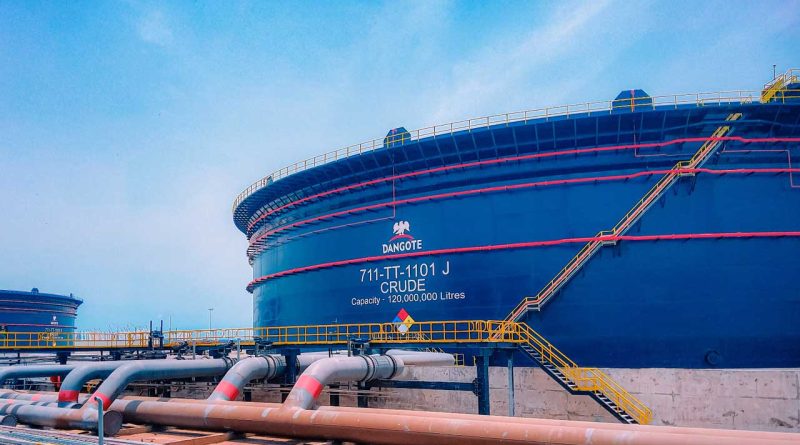Amidst new tariff on petrol import, Dangote refinery says it has enough for Nigerians
As Nigerians continue to debate the potential impact of a recent 15 per cent tariff on imported petrol and diesel, Dangote refinery, the largest oil refiner in the West African country, says it produces enough petrol and diesel for local consumption.
The refinery, owned by Africa’s richest man, Aliko Dangote, has made similar claims in the past, with Mr Dangote saying there was no need for further petrol imports into the country.
However, Nigeria still imports about 15 per cent of its local petrol needs and a recent memo by President Bola Tinubu approved a 15 per cent import tariff on all imported petrol and diesel.
The government stated that the directive aimed to “strengthen local refining capacity, and ensure a stable, affordable supply of petroleum products across Nigeria.”
Essentially, the tariff would ensure that imported petrol is not cheaper than that of the Dangote refinery, which produces virtually all of Nigeria’s locally produced petrol. The implementation of the tariff will begin in about a month, following the request by the chairman of the revenue agency, FIRS, Zacch Adedeji, whose memo triggered the presidential approval.
While many Nigerians argue that the new tariff policy would lead to an increase in the retail price of petrol, Dangote refinery, which has in the past announced reductions in its petrol prices, said there was no need for petrol import.
“Our refinery is currently loading over 45 million litres of PMS and 25 million litres of diesel daily, which exceeds Nigeria’s demand,” said Anthony Chiejina, the chief branding and communications officer of Dangote Industries Limited, the parent of the crude processing plant.
Mr Chiejina added in his Friday statement that the refinery is engaging with regulatory agencies and distribution partners to ensure an efficient nationwide supply of its products.
“Dangote remains steadfast in its commitment to meeting the energy needs of Nigerians. This significant production capacity not only guarantees local supply but also enhances energy security and reduces dependence on imports.”
Many experts have spoken of the benefits of the Dangote refinery, including energy independence and the strengthening of the naira’s value. President Tinubu has made reference to these benefits in his speeches. The naira’s exchange rate to the dollar has been relatively stable at between N1,500 and N1,400 to a dollar for several months as the country now has more dollars to support the naira, money which would have been used to import petrol or subsidise the product.
In his statement, Mr Chiejina said the improved local production of petroleum products has helped stabilise the exchange rate and strengthen the naira.
“We have reduced foreign exchange outflows and increased inflows, which in turn supports the naira and strengthens the economy,” he added.
Dangote refinery commenced diesel and aviation fuel production in January 2024. Later in September, it announced that it had begun producing petrol.
The refinery disclosed last month that it is on course to become the world’s largest refinery, with plans to scale up capacity to 1.4 million barrels per day (bpd) from the current 650,000 bpd.
The move will take the daily processing capacity of the plant, currently the world’s biggest single-train refinery, past that of India’s Jamnagar Refinery, whose capacity stands at 1.2 million bpd.
The company said the expansion phase will create 65,000 jobs and open tremendous opportunities for local industries.


